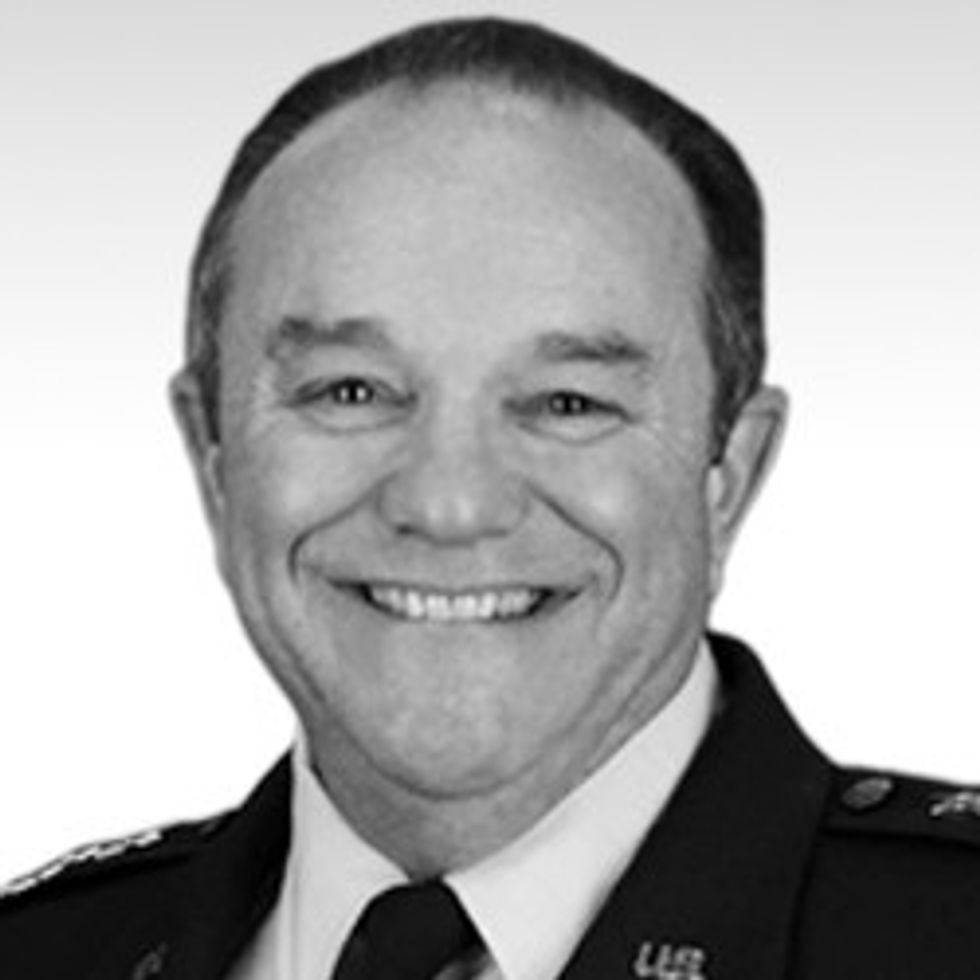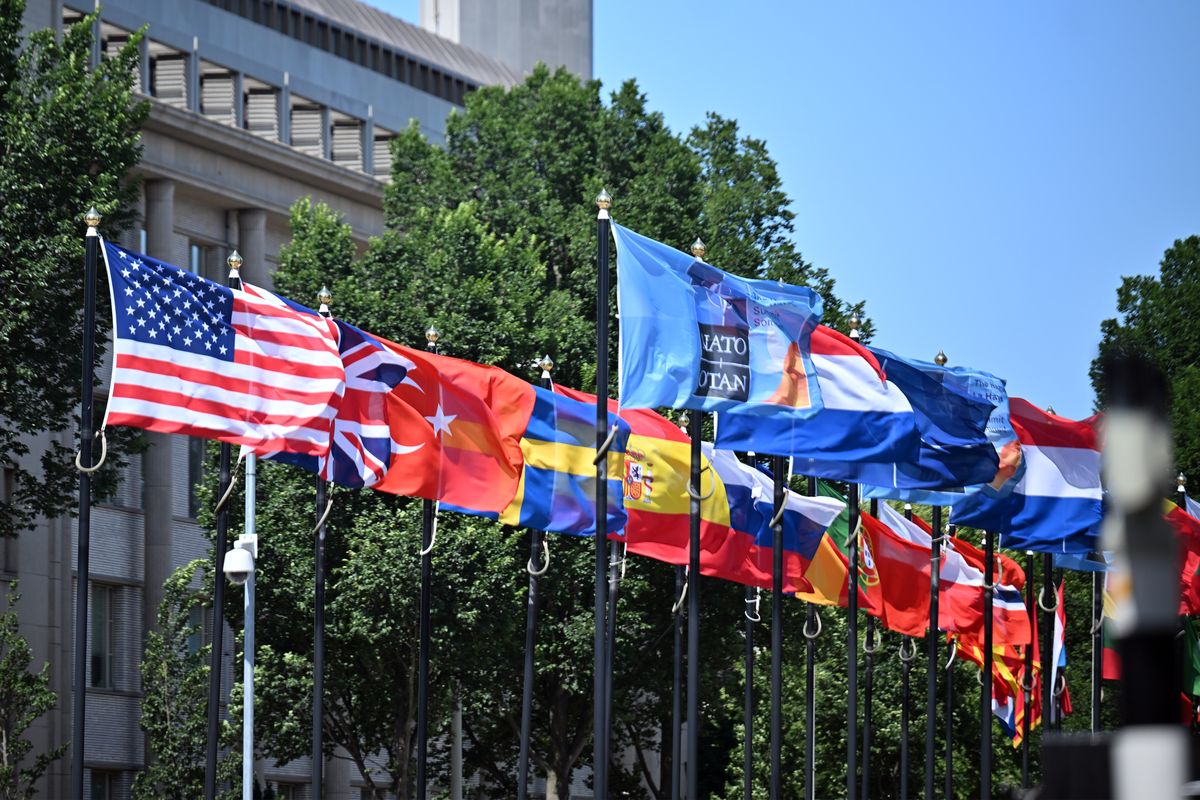Background: The Supreme Allied Commander Europe (SACEUR) is responsible for all of NATO’s military operations. The senior role has traditionally been held by an American, who usually serves a dual-hatted role as SACEUR as well as Commander of U.S. European Command. The Command structure also includes a Supreme Allied Commander, Transformation (SACT).
NATO was created after World War II, just as the Cold War began, as a way for smaller countries to band resources together to form a collective defense against larger nations. With three core functions; collective defense, crisis management and cooperative security, NATO has only once ever invoked Article 5 – which is the declaration that an attack against one, is an attack against all. That invocation of Article 5 occurred after the terrorist attacks of 9/11.
- All of the current 29 member countries are expected to contribute to the alliance by making a certain number of their own forces available for NATO’s military operations.
- The most recent SACEUR, who served in the role from 2013 – 2016 is Cipher Brief Expert, General Philip Breedlove. He served as operational commander eight times in his career before retiring.
As the former SACEUR, it was General Breedlove’s job to set objectives and make sure that the men and women of NATO had been properly organized, trained and equipped. He was also responsible for making sure they were properly funded and that they received the support they needed from their home countries.
His job was to go to all of the (then) 28 nations that were members during his tenure – including his own – and make sure that they were contributing on both the troop and funding levels. His own country could sometimes be the hardest to deal with, but one thing was clear according to the General: everything he did as SACEUR had to be taken in the context of the different ways in which nations think, so as the NATO summit gets underway in Brussels against a backdrop of mistrust and accusatory headlines, General Breedlove describes a successful NATO playbook that brings on the job perspective to the mission at hand.
The Brief: The framework for a successful summit must include the following objectives, according to the General:
Objective 1: “The first and foremost thing is a reaffirmation of our commitment to the alliance,” says Breedlove. “A reaffirmation of our commitment to the central tenements of collective defense, because the most important thing about NATO is the solidarity of NATO. The one thing that Mr. Putin wants to accomplish is to disassemble the solidarity of NATO. He does not want to have to look to his west and deal with an alliance. He wants to look to his west and deal with individual nations who have been scattered, because of the breaking up of the alliance or a denigrating of the importance of the alliance.”
Gen. Philip M. Breedlove, Former Supreme Allied Commander, NATO
"It is imperative that we understand the history. In my time, the greatest manifestation of that was not in the single nations, it was in the groups of nations, those nations in the South who were most distraught about what was going on in North Africa, Libya and Syria and causing the huge migration problems that the southern nations were facing when these migrations began. In the northern group of nations, these are the nations that live next to Russia, and they saw a Russia that was once again using force to change internationally recognized boundaries on the European landmass. And they were scared. Some of these nations had been under the rule of Russia two times in their lives and they celebrate two independence days from Russia: Estonia, Latvia, Lithuania and others.”
Objective 2: “We should celebrate how far we have come," Breedlove notes. "We have made great strides in force commitments and we have made progress on our commitment to investments, and so I think the second most important thing is a reaffirmation of all of the nation’s commitments to the pledges of Wales and Warsaw. We are doing really well on the force presence pieces. We ought to toot our horn about that. We’re doing pretty good - not great - but pretty good on our commitment to upping our investments, we ought to celebrate where it’s going right and we ought to put pressure - not alliance-breaking pressure - but we ought to put pressure on those who need to speed up a little bit.”
Gen. Philip M. Breedlove, Former Supreme Allied Commander, NATO
“This is going to be a volatile time. Here’s what we have to acknowledge, there are a lot of folks out there who are quick to bash this President and frankly, I was critical of his methods when he was a candidate and when he first became the President in the way that he was approaching NATO, but we have to have the intellectual honestly to look at some facts on the ground. Here’s a fact on the ground that is independent of the tools or the methods. Three Presidents before him tried to get NATO to increase their spending and one of those Presidents had the magnificent tool of the invasion of a country by another large country to try and manufacture interest and all three of those previous Administrations failed to get NATO to increase their spending. Again, and I may not sign up to the tools and the techniques that have been used, but we need to examine the facts on the ground.”
Objective 3: “There are some pretty important strides that the alliance wants to make in this particular summit. Some of that has to do with the mission and type of headquarters, how much of the fighting does the Atlantic mission take on? So, there are some pretty big next step actions that need to be taken at this summit. That is the winning combination coming out of it” said Breedlove.
Conclusion: “The next several days are going to be interesting. I still believe in my heart of hearts, that the most important thing is commitment to the solidarity of this alliance. We have kept the major peace on that continent for the last 70 years and so you may think I’m talking out of both sides of my mouth, but I think we need to remain committed to this alliance and celebrate what it does well for us, but we need to continue to make progress with our other allies to ensure they are doing their part.”
Gen. Philip M. Breedlove, Former Supreme Allied Commander, NATO
“To understand this better, we need to understand that the words that are being used in the press don’t help. The phrase ‘not paying their fair share’ has the absolute wrong connotation. Nobody is ‘paying’ NATO. That’s just a horrible connotation and it really points out how little people understand about what’s going on. These are about investments in their own military so that their military can be an important part of the collective mission of NATO and it would be really helpful if we used the right kind of words.”
Prior to assuming his position as SACEUR, General Breedlove served as the Commander, U.S. Air Forces in Europe; Commander, U.S. Air Forces Africa; Commander, Air Component Command, Ramstein; and Director, Joint Air Power Competence Centre, Kalkar, Germany. He was responsible for Air Forces activities, conducted through 3rd Air Force, in an area of operations covering more than 19 million square miles. This area included 105 countries in Europe, Africa, Asia and the Middle East, and the Arctic and Atlantic oceans. As Vice Chief, he presided over the Air Staff and served as a member of the Joint Chiefs of Staff Requirements Oversight Council and Deputy Advisory Working Group. He assisted the Chief of Staff with organizing, training, and equipping of 680,000 active-duty, Guard, Reserve and civilian forces serving in the United States and overseas. General Breedlove is a command pilot with 3,500 flying hours, primarily in the F-16 and has flown combat missions in Operation Joint Forge/Joint Guardian.















